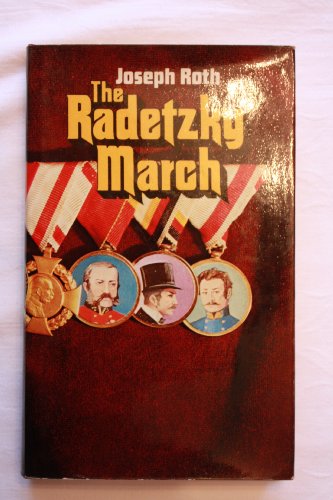

Baron Trotta is forced to leave his old life behind to make his way into the aristocratic circles where he ostensibly belongs. Even his own father can’t seem to see his son as anything other than a social superior, bowing and scraping as though to a nobleman acquaintance.

Everyone from his old life now treats him as a man of high quality, deferring to him despite the fact that Trotta doesn’t act any differently. Although this is ostensibly a mark of huge favor, the young man finds his life turned upside down by his new social rank. The well-meaning, though not particularly wise Emperor rewards Trotta’s actions by ennobling him to the rank of Baron.

Just in time, the eventual patriarch of the Trotta family, Infantry Lieutenant Trotta bravely saves the ruler’s life by pulling him down off his horse.

The real-life Emperor, Franz Joseph I, comes under sniper fire. The novel opens on June 24, 1859, during the Battle of Solferino, a climactic encounter during the Second War of Italian Independence when France and a newly unified Italy fought against the Austrian Empire. The novel’s ironic title comes from a composition by composer Johann Strauss Sr., a march written to honor the nineteenth-century Austrian Field Marshal Joseph Radetzky von Radetz – music that marks the heyday of the empire that now is falling. Filled with Roth’s signature wit, the novel diagrams the comedy of unintended consequences, as well-intentioned actions lead ultimately to disaster. We watch as the Trottas go from the height of their professional soldier roots to an eventual downfall. In Radetzky March, Roth satirizes the decline and fall of the Austro-Hungarian Empire, the last dregs of which are exemplified in the several generations of the Trotta family chronicled by the novel. He was forced to flee the country both because of his Jewish heritage and because he was an intellectual, a liberal journalist, and a prominent writer. Coetzee put it in an article in The New York Times Review of Books, Roth suffered greatly as Hitler and the Nazis came to power in the 1930s. Universally recognized as "one of the greatest German-language writers of the twentieth century,” as J. Joseph Roth’s 1932 historical novel, Radetzky March, was written in the author’s native German, published to enormous acclaim, and quickly translated into many languages, including English.


 0 kommentar(er)
0 kommentar(er)
